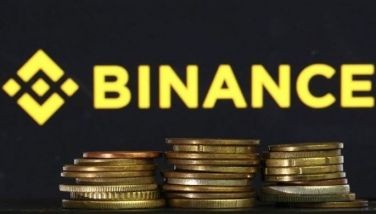Banks’ bad loans climb further to P431 billion in February
MANILA, Philippines — Soured loans of Philippine banks picked up for the second straight month, rising by 9.6 percent to P472.66 billion in February from P431.27 billion in the same month last year, as the National Capital Region (NCR) and nearby provinces were placed under Alert Level 3 due to COVID-19 infections that hit record levels due to the more contagious Omicron variant.
Latest data showed the rise in bad debts to P11.15 trillion from P10.58 trillion was faster than the 5.4 percent increase in bank lending.
As a result, the gross non-performing loan (NPL) ratio of the banking sector increased for the second straight month to a three-month high of 4.24 percent in February from 4.14 percent in January. This was the highest since the 4.35 percent booked last November.
Amid the increasing bad debts, the sector’s allowance for credit losses rose by 9.2 percent to P407.03 billion from P373.63 billion for a higher loan loss reserve level of 3.69 percent.
This translated to an NPL coverage ratio of 86.12 percent, slightly lower than the previous year’s 86.64 percent.
The Bangko Sentral ng Pilipinas (BSP) sees the NPL ratio of Philippine banks accelerating and peaking at 8.2 percent this year.
The NPL ratio of Philippine banks stayed above four percent from February to November last year due to uncertainties brought about by the COVID-19 pandemic. It peaked last year at a 13-year high of 4.51 percent in July and August before declining steadily to 3.97 percent in December.
Data showed that the past due loans, referring to all types of loans left unsettled beyond payment date, inched up by 1.2 percent to P557.96 billion from P551.47 billion for a past due ratio of five percent.
The sector’s restructured loans surged by 71.2 percent to P344.08 billion in February from P200.98 billion in the same month last year, translating to a restructured loan ratio of 3.09 percent.
BSP Governor Benjamin Diokno said the central bank would continue to closely monitor the impact of emerging COVID-19 variants on the banking system.
“Supervisory and surveillance tools have been strengthened to ensure that appropriate focus and attention are placed on this area,” Diokno said.
Meanwhile, S&P Global Ratings is convinced the NPL ratio of Philippine banks already peaked at 4.5 percent last year and will decline with the implementation of Republic Act 11523 or the Financial Institutions Strategic Transfer (FIST) Act.
The BSP sees banks offloading P152 billion worth of bad assets via the FIST Law, helping reduce the NPL ratio of the banking sector by 0.63 to 0.71 percentage points.
S&P sees a faster credit growth of five to seven percent this year as the economy continues to bounce back from the pandemic-induced recession.
Latest data showed that loans disbursed by big banks grew at a faster rate of 8.8 percent to P9.72 trillion in February from P8.94 trillion in the same month last year amid the easing of COVID-19 quarantine and lockdown measures.
After slumping for eight straight months between December 2020 and July 2021 due to the global health crisis, bank lending has been increasing since August last year as the economy finally absorbed the 200 basis points cuts in interest rates and lowering of reserve requirement ratio delivered by the BSP Monetary Board as part of its COVID-19 pandemic response measures.
Economic managers, through the Cabinet-level Development Budget Coordination Committee, sees a faster gross domestic product growth of seven to nine percent this year after the country excited the pandemic-induced recession with an expansion of 5.7 percent last year, reversing the 9.6 percent contraction in 2020.
- Latest
- Trending


























